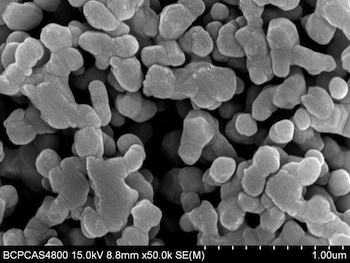According to the Centers for Disease Control and Prevention, more than 1.1 million people in the US are infected with human immunodeficiency virus. But new research has detailed the creation of a cream that has proved effective against transmission of the infection in laboratory tests.
Previous research from the University of Texas, in collaboration with the University of Monterrey in Mexico, found that silver nanoparticles may be able to stop transmission of human immunodeficiency virus (HIV).
Now, the research team has used the findings to create a vaginal cream that can block HIV transmission.
Humberto Lara Villegas, of the University of Monterrey and co-author of the study, says that in order for HIV to infect immune cells of its host, a protein called GP120 helps the virus bond to the cells.
He explains that the silver nanoparticles attach themselves to the GP120 protein and block it, meaning HIV is unable to infect immune cells.
Commenting on the creation, Lara Villegas says:
"Normally, the medication used against the virus act within the cell to avoid its replication. This is a very different case, given that the nanoparticle goes directly against the HIV and no longer allows its entry to the cell."
Positive results in laboratory tests
He says the cream has been tested in the laboratory using human tissue samples of cervical mucous membrane. It was found to effectively block HIV transmission.
Lara Villegas notes that the cream works in less than 1 minute following application and is protective against virus transmission for up to 72 hours.
The researchers say although the cream is for vaginal use, the sexual partner will also be protected against the virus.

Using silver nanoparticles (pictured), researchers have created a vaginal cream that has proved effective in blocking HIV transmission.
Image credit: Investigación y Desarrollo
However, Lara Villegas stresses that although there have been no negative side effects from the silver nanoparticles so far, the team will carry out further investigation to be sure.
The next steps will be to test the cream on mice that are modified with human immune cells, before moving on to clinical trials in humans.
The researchers note that the cream may also help to protect against other sexually transmitted infections, such as the human pappilloma virus (HPV), as the silver nanoparticles should be able to block this virus using the same process it uses to block HIV infection.
The team is also in the process of creating a diagnostic kit. The kit will use blood tests to predict whether an HIV-positive individual will respond to antiretroviral treatment.
They hope the kit will provide these results within hours, and that it will help clinicians to ensure their patients receive the best possible treatment for HIV.
Medical News Today recently reported on a study suggesting that targeting HIV with radioimmunotherapy may abolish the virus from infected cells.
Written by Honor Whiteman
No comments:
Post a Comment